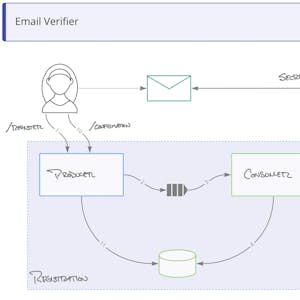The Software Architecture Patterns for Big Data course is designed for individuals seeking to understand the architecture patterns essential for deploying large software systems that utilize big data. The comprehensive curriculum equips learners with the skills to transform big data prototypes into high-quality tested production software. By measuring the performance characteristics of distributed systems, students can identify and address trouble areas, implementing scalable solutions to enhance performance.
The course covers topics such as comparing, measuring, and testing big data models for production use, writing custom performance tests to measure distributed system characteristics, and using queues to horizontally distribute large workloads. Additionally, students will learn how to scale production data stores to perform under load and design load tests to ensure applications meet performance requirements.
Certificate Available ✔
Get Started / More Info
The course modules cover predictive models, performance of distributed systems, horizontal distribution of large workloads, and highly available distributed systems. Students will gain in-depth knowledge and practical skills to transform big data prototypes into high-quality, tested production software.
The Predictive Models module introduces students to the essential concepts and skills required to compare, measure, and test big data models for production use. The module also covers writing custom performance tests to measure the characteristics of a distributed system and using queues to horizontally distribute large workloads.
The Performance of Distributed Systems module focuses on understanding the performance characteristics of distributed systems and implementing scalable solutions to improve performance. Students will learn to identify performance concerns and write performance tests to measure distributed system characteristics.
The Horizontal Distribution of Large Workloads module equips students with the knowledge and skills to perform performance testing and make improvements based on the results. The module covers the use of consistent hash exchange and messaging queues for high availability databases.
The Highly Available Distributed Systems module delves into the CAP theorem trade-offs and the concept of availability. Students will gain insights into high availability databases, tradeoffs regarding high availability databases, and the impact of delay, memory, and messaging tradeoffs in distributed systems.
This course in Software Engineering equips programmers with the skills and techniques needed for successful software development, emphasizing methodologies, design,...
Create a fully functioning picture puzzle game using Java and Swing toolkit in this 1-hour long project-based course.
Introduction to Shader Graphics with OpenGL is a 1-hour project-based course that teaches you to draw a triangle and create a shader system with modern OpenGL and...
Responsible AI: Applying AI Principles with GC is a comprehensive course offered by Google Cloud. It focuses on implementing Responsible AI practices within organizations....